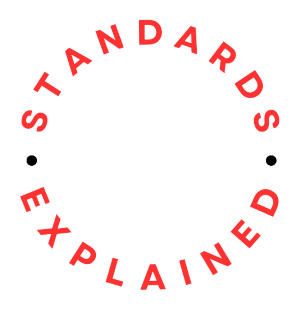What is an audit?
An audit is an objective examination of an organisation’s procedures, practices and supporting documentation. This involves outlining what you said you would do, what you actually did (supported by evidence) and noting any situation where it was not possible to do as you had planned and the actions you took instead.
What does an auditor do?
An auditor assesses the effectiveness, efficiency, and compliance of processes, systems, or organizations with established standards, regulations, or requirements. They perform various tasks during the audit process. These include planning and preparation, data collection and analysis, verification of compliance, identification of nonconformities, reporting of findings, and recommendation of corrective actions. They may work internally within an organization as internal auditors or externally as independent auditors, such as those employed by certification bodies or regulatory agencies.
Auditors are typically expected to possess specific qualifications, knowledge, skills, and competencies relevant to the type of audit being conducted and the industry or sector in which they operate. They must also adhere to professional standards, ethical principles, and auditing guidelines to ensure the integrity, impartiality, and reliability of audit outcomes.

Types of audit
There are basically two types of audit: internal and external. In the context of international standards, both internal and external audits serve critical roles in assessing compliance with standards and ensuring the effectiveness of management systems.
Here are the key differences between internal and external audits.
Purpose and Scope
Internal Audit
These are conducted by personnel within the organization, known as internal auditors. The primary purpose of internal audits is to evaluate the organization’s management system, processes, and controls to ensure compliance with standards, internal policies, and regulatory requirements. Internal audits focus on identifying areas for improvement, enhancing efficiency, and driving continual improvement within the organization.
External Audit
These are conducted by independent third-party auditors or certification bodies that are not part of the organization being audited. The primary purpose of external audits is to provide an impartial and objective assessment of the organization’s compliance with international standards or regulatory requirements. External audits are often conducted for certification or regulatory compliance purposes and focus on verifying conformity with standard requirements to ensure credibility and trustworthiness.
Independence and Objectivity
Internal Audit
Internal auditors are employees of the organization and may have a vested interest in the outcomes of the audit. However, internal auditors are expected to maintain independence and objectivity in their audit activities, free from bias or conflicts of interest. They typically report to management or the audit committee and may focus on improving internal processes and controls.
External Audit
External auditors are independent of the organization being audited and are hired by certification bodies, regulatory agencies, or other external entities. They are required to maintain strict independence and objectivity in their audit activities to ensure impartiality and credibility. External auditors do not have a direct stake in the organization’s operations and are focused on providing an unbiased assessment of compliance with standards or regulations.

Authority and Reporting
Internal Audit
Internal auditors are appointed by the organization’s management or governing body and report internally to management, the audit committee, or the board of directors. The findings and recommendations of internal audits are typically used for internal purposes, such as improving processes, enhancing controls, and driving organizational performance.
External Audit
External auditors are appointed by external entities, such as certification bodies or regulatory agencies, and are granted authority to assess compliance with standards or regulations. They report their findings and conclusions to the organization being audited, as well as to external stakeholders, such as certification bodies or regulatory authorities. The results of external audits may impact the organization’s certification status or regulatory compliance.
Frequency and Timing
Internal Audit
These are conducted at regular intervals determined by the organization’s audit schedule, risk management processes, and internal requirements. Internal audits may be conducted more frequently to address specific areas of concern or in response to changes in organizational processes or systems.
External Audit
These are typically scheduled at planned intervals as part of the certification or regulatory compliance process. The frequency of external audits may vary depending on the requirements of certification bodies, regulatory agencies, or industry standards. External audits are often conducted annually or at specified intervals to maintain certification or demonstrate compliance.
In summary
While both internal and external audits play crucial roles in assessing compliance with international standards, they differ in terms of their purpose, independence, authority, and reporting mechanisms. Internal audits focus on improving internal processes and controls, while external audits provide an independent assessment of compliance with standards or regulations to ensure credibility and trustworthiness.
Self-audit tool
You can assess your organization’s conformity with the requirements of any management system standard using our self-audit tool. Download your free copy from here (.pdf).
